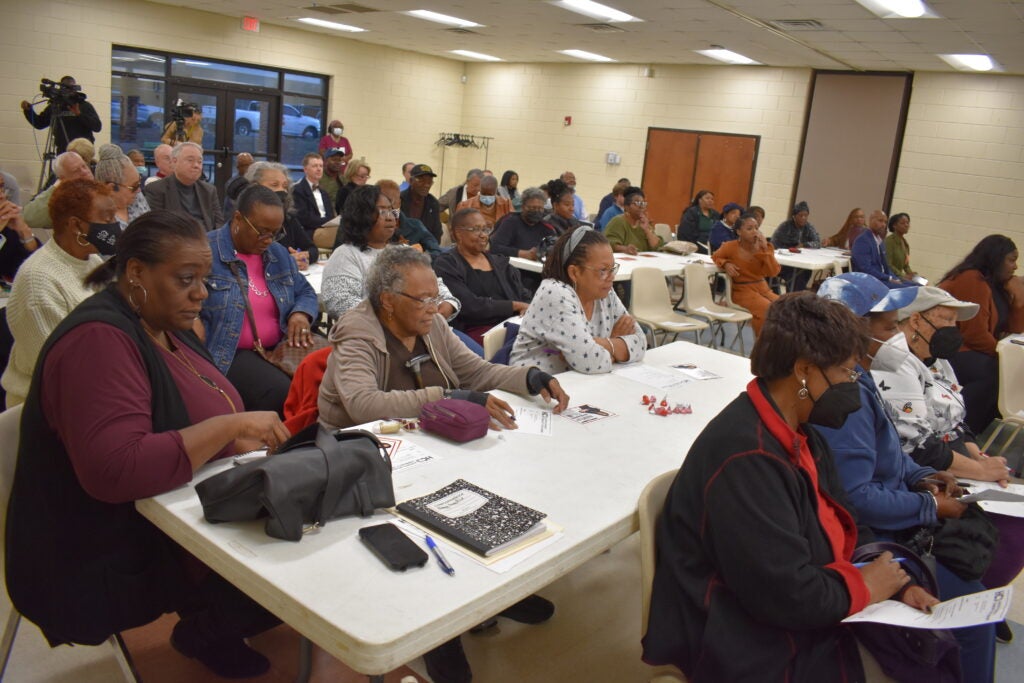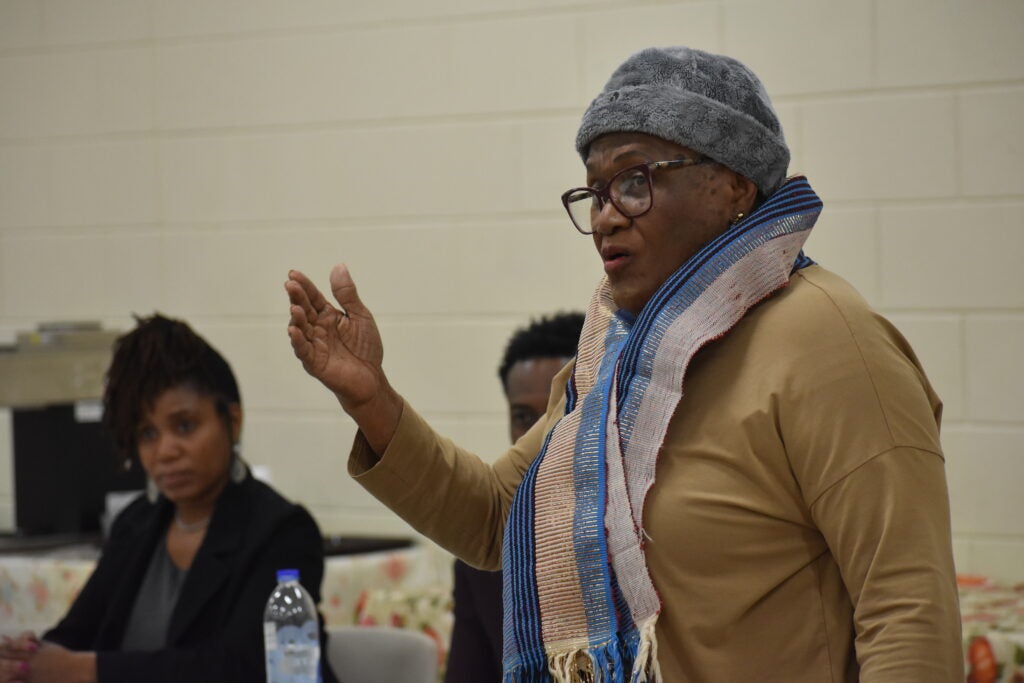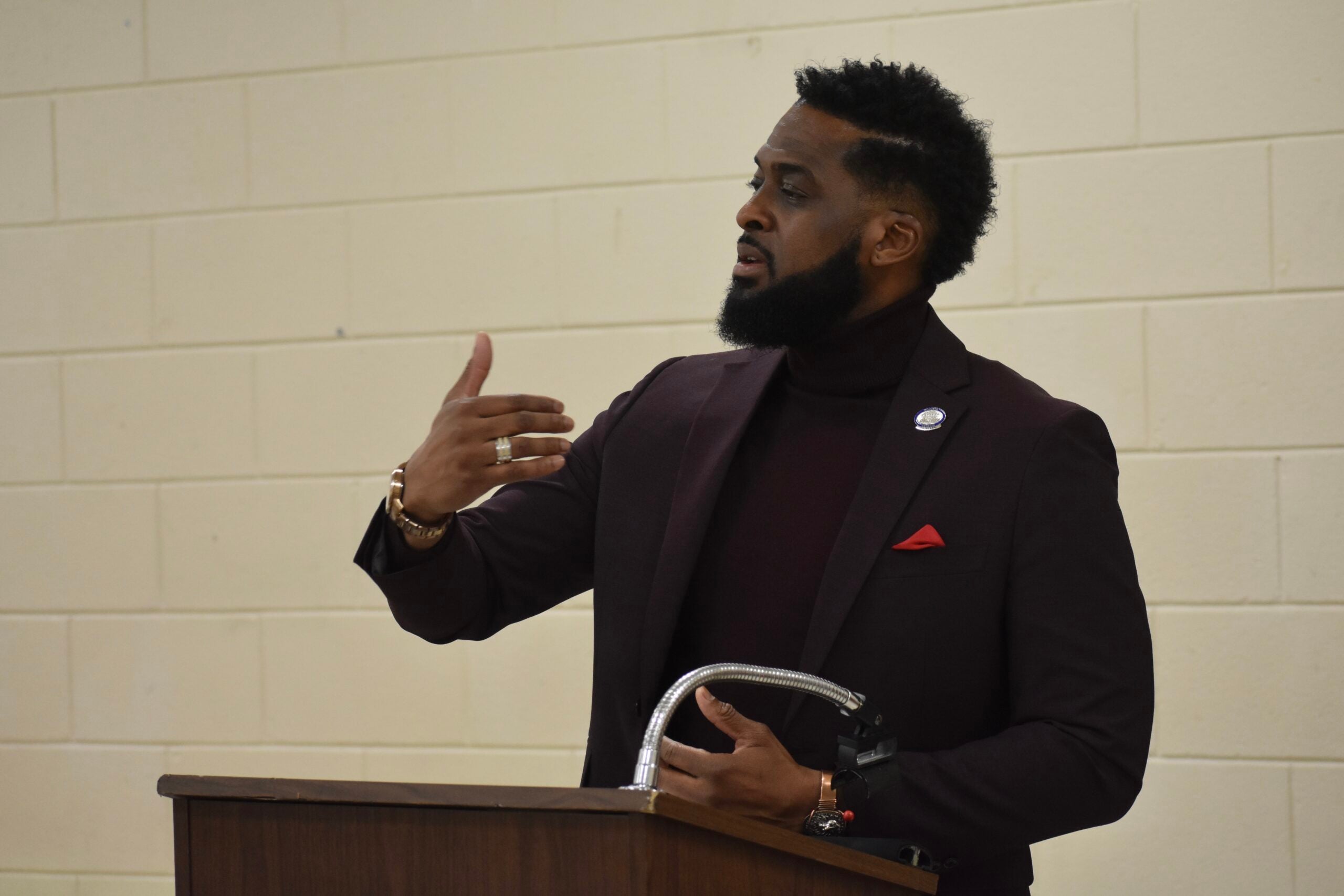In hopes of getting community feedback and ideas, the director of the Augusta Housing and Community Development hosted a Sand Hills community meeting on Wednesday, Feb. 7, to discuss the city’s purchase of the Weed School.
After the Augusta commissioners voted and approved a $1.3 million purchase of the Weed School on Jan. 30, Director of the Augusta Housing and Community Development Hawthorne E. Welcher Jr. said he wanted to alleviate the community’s grievances with in-person, transparent gatherings.
“I don’t hide,” Welcher said during a brief introduction. “I want to be transparent with the media and other people.”
Longtime community member Riley Boyle said Augusta’s Weed School holds many of Sand Hills’ treasured neighborhood memories from over the years; however, Boyle also said the loss of the school might also “be for the better.”
“It may not be special to others, but it’s special to us … and it can be something new for us,” she said. “It’s going to affect everyone who lives in this neighborhood, everyone who owns property in this neighborhood, and anyone else who has a strong affiliation with this neighborhood.”

Promoting the need for a dramatic community change in order to encourage more people to move back into the Sand Hills area, Welcher and other participants agreed a mixed interest building might jumpstart a desired friendly and safer environment.
“We all have to be active stakeholders in this process, and we have to do our part in helping this become greater than what it is right now … unity is strength and division is weakness,” said Boyle. “So it’s important for us to think about what it was, and that it will never be that again.”
MORE: Driver allegedly knocks beam off Olive Road bridge, underpass to be closed for months
Another attendee and longtime Augustan Vivian Rosieo said she found the meeting to be very interesting as many “fruitful ideas were put forth.” Comparing the old days to the present, Rosieo said it still “takes a village” to raise children, and Sand Hills has no central village because there is no sense of community.

“We all must come together. We can no longer complete plans separately, and it doesn’t work when we’re rebuilding,” said Rosieo. “Much needs to be done.”
With several attendees requesting Welcher propose the Weed School be transformed into a facility that is more centered around families or their health, Welcher said he felt as though the meeting allowed him to gain a better perspective on the wants, concerns and needs of the community.
“I was expecting to hear about grocery stories, shops, food deserts – things like that, so I was surprised,” he said.
Although the county does not have any plans for the Weed School, Welcher said the school’s current land could act as a catalyst to vastly improve the neighborhood and its houses.
“We needed a nucleus,” he said. “Some type of impactful give or catalytic change, and that’s why we’re here today to talk about that process.”
Welcher is expecting to hold another community meeting sometime in April to hear more thoughts from locals, and encourages those who feel passionate about the Weed School to attend.
Liz Wright is a staff writer covering education, lifestyle and general assignments for The Augusta Press. Reach her at liz@theaugustapress.com










